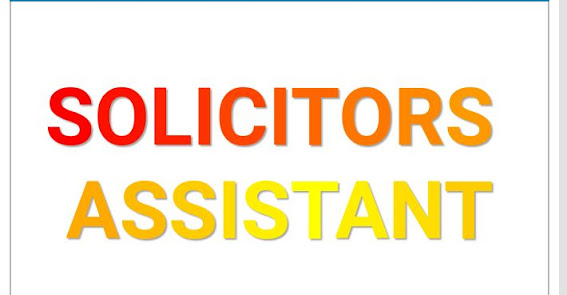Is it illegal to bypass restricted sites with VPN?
In this article, we will conduct a thorough examination of the legal implications of using VPNs to bypass restricted sites or contents, analyzing the global perspective and the potential risks and consequences involved.
The Legal Implications of Using VPNs to Access Restricted Sites: A Comprehensive Analysis
Introduction
In an increasingly connected world, the internet has become an indispensable tool for information access, communication, and entertainment. However, various countries and organizations impose restrictions on internet content, leading some individuals to resort to virtual private networks (VPNs) as a means to bypass these restrictions.
While VPNs can offer enhanced online privacy and security, the legality of using them to access restricted sites is a complex and multifaceted issue.
You may also like: how to handle domestic violence
What is VPN?
A virtual private network (VPN) is a technology that establishes a secure and encrypted connection over the internet, allowing users to access the web through a server located in a different geographic location. The primary purposes of VPN usage include enhancing online security, protecting data privacy, and circumventing geo-blocking or internet censorship measures.
Uses of VPNs over the internet
1. Security and Privacy Benefits of VPNs.
VPNs create a secure tunnel between the user's device and the VPN server, encrypting data and shielding it from potential cyber threats or prying eyes, such as hackers, ISPs, or government surveillance.
2. Geo-Bypassing and Access to Restricted Content:
One of the most well-known uses of VPNs is to bypass geographic restrictions, granting users access to content, services, or websites that may be restricted or unavailable in their country.
Countries with Explicit VPN Restrictions:
Some countries explicitly prohibit or restrict the use of VPNs. For example, China has stringent regulations on VPN usage, and users face potential legal consequences for bypassing the Great Firewall to access restricted content.
However, there are other countries out there restricting citizens from accessing certain website. Individual and companies can also implement this policy to block users from certain location from having access to their website or contents.
The Legal Landscape of VPN Usage
The legality of using VPNs to access restricted sites varies significantly from country to country and is influenced by multiple factors, including the country's laws, the nature of the restricted content, and the user's intent behind using the VPN.
1. Privacy and Data Protection Laws
In certain jurisdictions, using a VPN for enhancing privacy and data protection is legal, provided it does not violate any specific laws or regulations related to data privacy.
2. Circumventing Copyright Laws and Piracy
Using a VPN to access copyrighted content illegally, such as pirated movies or software, is generally considered illegal in many countries, as it violates copyright laws.
2. Avoiding Criminal Activities:
Using VPNs to conduct illegal activities, such as cybercrime, hacking, or fraud, is universally unlawful and subject to severe penalties.
Potential Legal Risks and Consequences
Using a VPN to access restricted sites can expose users to various legal risks and potential consequences, which include:
1. Violation of Local Laws
In countries with strict regulations on VPN usage, users may face fines, imprisonment, or other legal penalties for violating the law.
2. Termination of Services:
In some cases, internet service providers (ISPs) or online platforms may terminate a user's account if they detect VPN usage to access restricted content.
3. Exposure to Cyber Threats
Using unreliable or free VPN services can expose users to security risks, including data breaches, malware infections, and data logging by unscrupulous providers.
4. Copyright Infringement Claims:
Accessing copyrighted content through VPNs can lead to copyright infringement claims, resulting in legal action and potential monetary damages.
5. Government Surveillance
In regions with extensive government surveillance, using a VPN may attract unwanted attention from authorities, potentially leading to further scrutiny or monitoring.
Navigating the Legal Landscape Responsibly before bypassing the firewall
To use VPNs responsibly and legally, consider the following recommendations:
1. Know the Laws:
Familiarize yourself with the laws and regulations concerning VPN usage in your country and the country hosting the restricted content.
It's good to know that ignorance of the law is not an excuse for violating it. Consult a legal practitioner for advice.
2. Choose Reputable VPN Providers:
Select reputable and trustworthy VPN providers that have a clear privacy policy and do not log user data.
3. Use VPNs for Legitimate Purposes:
Use VPNs for legitimate reasons, such as safeguarding your online privacy, accessing content within copyright laws, or circumventing legitimate geo-blocking for services unavailable in your region.
4. Respect Copyright and Intellectual Property:
Avoid accessing copyrighted material illegally and support content creators by obtaining content through legal means.
5. Follow Platform Policies:
Adhere to the terms of service of online platforms, as many social media platforms explicitly prohibit VPN usage to circumvent restrictions.
Conclusion
The legality of using VPNs to access restricted sites is a complex issue, with legal consequences varying significantly across different countries and jurisdictions. While VPNs offer enhanced online security and privacy benefits, their usage in bypassing content restrictions demands responsible and informed decision-making. Users must be aware of their local laws, the potential risks involved, and the legitimacy of their intentions when using VPNs. By exercising caution and understanding the legal implications, individuals can navigate the use of VPNs responsibly while respecting the rights of content creators and adhering to the laws of their respective regions.

.jpg)
